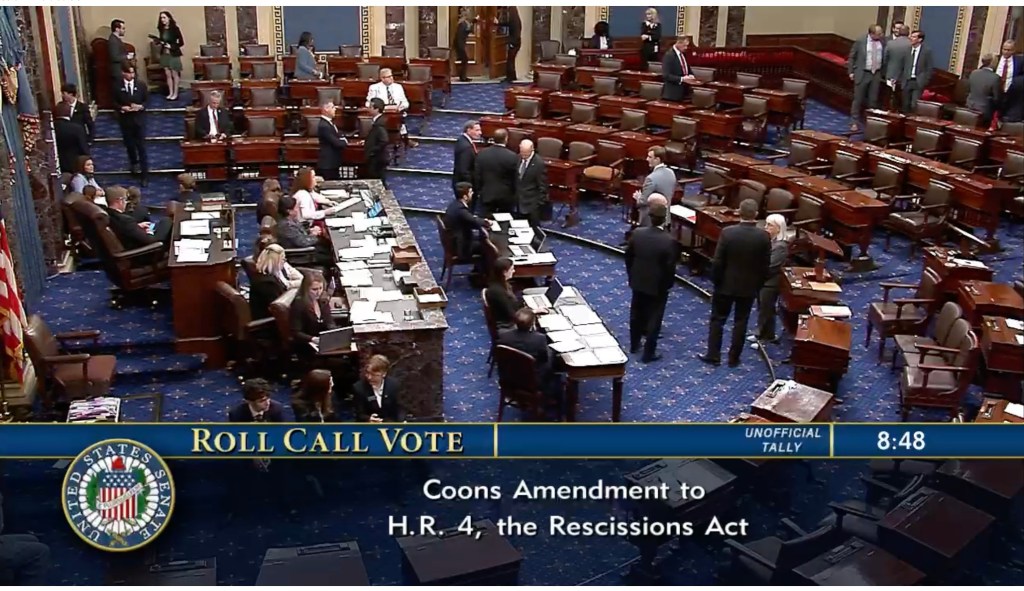The Senate started a day-long prelude to a final vote on whether to strip public broadcasting of all federal funding, with lawmakers expected to introduce amendments throughout the day.
At stake is the future of the public media ecosystem, as Congress considers Donald Trump‘s package of more than $9 billion in cuts to foreign aid and public media. That includes rolling back $1.1 billion in money already allocated to the Corporation for Public Broadcasting, which distributes grants to stations, NPR and PBS. That would zero out the CPB budget over the next two years.
The Senate on Wednesday afternoon started a process is dubbed vote-a-rama, where members can offer up amendments. Democrats plan to offer a series of changes, including ones that would alleviate the impact of the cuts. They include measures to provide continued funding for tribal stations, emergency alerts and public safety.
Public media stations, executives, viewers and other advocates have been calling congressional offices and meeting lawmakers in advance of the vote. PBS President Paula Kerger told MyRumors on Tuesday that without the federal funding, it would be an “existential” crisis for smaller stations in particular, including those in rural areas. PBS itself also would face making cuts, even though it relies on a small percentage of its budget from direct federal funding.
Advocates also have stressed the benefit of local stations in providing public safety information, with the ability to reach viewers and listeners during major disasters in areas with limited or no cell service.
Sen. Maria Cantwell (D-WA) said on the floor earlier Wednesday, “We are not just putting PBS at risk we are putting millions of Americans who rely on local media for lifesaving information.”
Many Republicans have long desired to end federal support of public media, characterizing it as an unnecessary expense in the federal budget that can be filled by other means. This time, though, much of the attention has focused on alleged bias by PBS and NPR.
On the Senate floor, Sen. Eric Schmidt (R-MO) said that taxpayers would be “mortified that they are spending money for the head of NPR to call the president a racist, a bigot.” That was a reference to social media posts made by Katherine Maher, the CEO of NPR. But they were made several years before before she took the NPR position in 2024, and she said at a House hearing earlier this year that she regretted posting them.
Schmidt also said that Ronald Reagan also sought to zero out funding, but was unable to do it during his presidency. He said that there was now the “political will” to do it. Trump has warned that he would withhold support or endorsement from any lawmakers who voted against the package of cuts, known as rescissions.
That said, the final vote likely will be close.
In a procedural vote on Tuesday, Vice President JD Vance had to break a tie to bring the rescissions package to the floor. Sen. Susan Collins (R-ME), Sen. Lisa Murkowski (R-AK) and Sen. Mitch McConnell (R-KY) joined with all Democrats in voting against it.
But so far, no other Republican has emerged against the package, even as members have complained that the White House has failed to provide details on how the cuts will be implemented. Sen. Thom Tillis (R-NC) said that he was planning to vote for it, even as he said that he would consider amendments to address some of his concerns. He also suggested that there probably should “at some point” be funding for public media, but “I’m not going to fight that part of the rescissions.”
If the Senate passes the package with changes, which is expected, it likely will go back to the House. The lower chamber has to vote on it by Friday, or the funding will stay as is.
